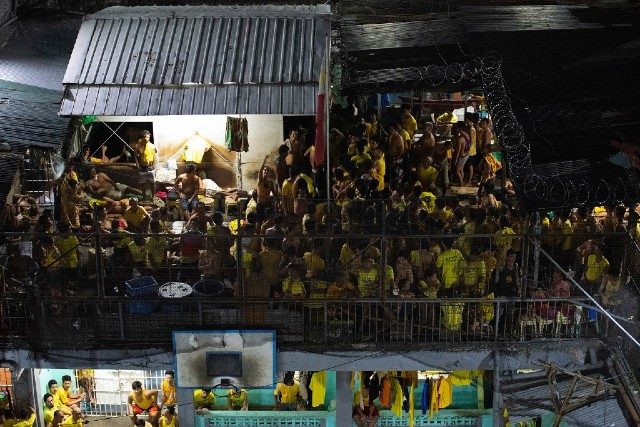SUMMARY
This is AI generated summarization, which may have errors. For context, always refer to the full article.

MANILA, Philippines – As coronavirus threatens Philippine jails, the Supreme Court on Monday, April 20, ordered judges to urgently release prisoners who fall under a 2014 guideline on jail decongestion.
This is not the decision yet on the petition to release low-risk and vulnerable inmates, but an enforcement of rules from 2014.
Court Administrator Midas Marquez released a circular to judges Monday reminding them of a 2014 guideline by the High Court that says inmates who have been detained longer than their minimum penalty, and those whose cases are unmoving because of lack of witnesses, shall be released to decongest jails.
READ: OCA Circular No. 91-2020 addressed to all judges of the first and second level courts regarding the Release of Qualified Persons Deprived of Liberty pic.twitter.com/iEwe9lndnR
The releases are considered temporary, and their cases will continue to be tried before the courts. In the case of those whose jail time had lapsed their minimum penalty, no bail shall be required.
“Considering the continuing congestion of detention facilities nationwide and consequent high risk of Persons Deprived of Liberty (PDL) being afflicted with Covid-19…all judges are hereby reminded to adhere to the guidelines for decongesting holding jails,” Marquez said.
Marquez directed the judges to immediately conduct an inventory of their cases to see if they have inmates under their jurisdiction who can be released under the 2014 guidelines.
Marquez’s circular also authorized the judges to act on these cases motu proprio or on their own, meaning without the need for the inmates or their lawyers to file a motion before the court.
Judges “may release such detainees on their own recognizance, provided that the court is assured of where the accused can be located while their cases are ongoing trial.”
For those whose cases are unmoving because of the lack of witnesses, the 2014 guidelines said the case shall be provisionally dismissed but may be revived when witnesses become available.
“Motions for recognizance and provisional dismissal of cases resulting in the release of the PDLs from detention may be considered urgent and must be immediately set for hearing,” said Marquez.
Because courts are physically closed nationwide, Marquez said judges can issue release orders electronically.
A welcome move
Although it is just a reiteration of guidelines that have been in place since 2014, human rights lawyers welcomed the move.
The Public Interest Law Center (PILC), which filed the petition to release on humanitarian grounds low-risk and vulnerable prisoners, said the memorandum “is a timely cue for all other offices and agencies of government to hasten and cause the decongestion of prisons, which are hotspots of COVID-19 infection.”
The 2014 guidelines do not necessarily cover vulnerable inmates, which is what the petition seeks to achieve. The Duterte government is due on April 24 to submit to the Supreme Court its answer to the petition.
“We are hopeful that this will begin the process of releases of prisoners amidst the COVID-19 pandemic, with humanitarian considerations,” the PILC said.
Bayan Muna Representative Carlos Zarate said: “”We trust that following this circular, the High Court will also resolve in earnest the petition filed by some political prisoners for their release, including those other vulnerable PDLs, on humanitarian grounds in the midst of this Covid19 pandemic.” – Rappler.com
Add a comment
How does this make you feel?
There are no comments yet. Add your comment to start the conversation.